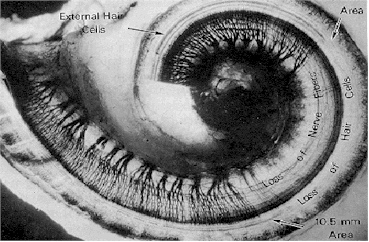James Sabry
came to give a guest lecture on the cerebral cortex, and you could instantly tell he wasn’t an academic: his lecture was too smooth, his presentation style, too
inviting. He brought up a number of interesting thought puzzles that I had really thought about since a cognitive science class back in undergrad.
* Free will and the brain.
Corante’s got a similar question
, but try this one on for size. If thoughts, movements, senses–everything neurological–comes from neurons, where are the “free will” neurons
that initiate thoughts or movements? If you have to activate a neuron to raise your arm in the air, where does the first thought come from, and the first neuron
activation to activate all the other neurons in the relay? When I stick out my tongue, am I somehow
willing
neurons to fire? For their voltage-dependent sodium channels to somehow open on thought command? At the very beginning of the motion, you think (consciously or
consciously), “I’m going to stick my tongue out.” But where does the initial movement come from? Is my thought somehow activating my brain?
What’s upstream?
* Less unexplained, but still fun to think about: it takes
time
for your eyes to get signals, send them to the brain, and process them, to tell you what you’re seeing. (
Only 150 milliseconds, according to this report, but still.
) So think of it this way: everything you’re seeing has, technically, already happened. Everything you take for the present is actually 150 milliseconds ago.
And what’s more–your brain knows to coordinate the video with the audio. Light travels much faster than sound–it’s why you see lightning
before you hear the thunder–but if you’re talking with someone, you don’t notice the difference. Distances are shorter, sure, but the auditory
neurons have a different pathway and slightly different speed than your visual neurons, but you never get the feeling that things are out of sync, or like
you’re watching a poorly dubbed movie.
It’s these fascinating questions that keep me going. Keep me in awe and wonder. The anatomy and physiology, without their quirks and twists, are utterly boring.
On that note, back to cerebellum function.
Comments Off
on Cognitive Conundrums

